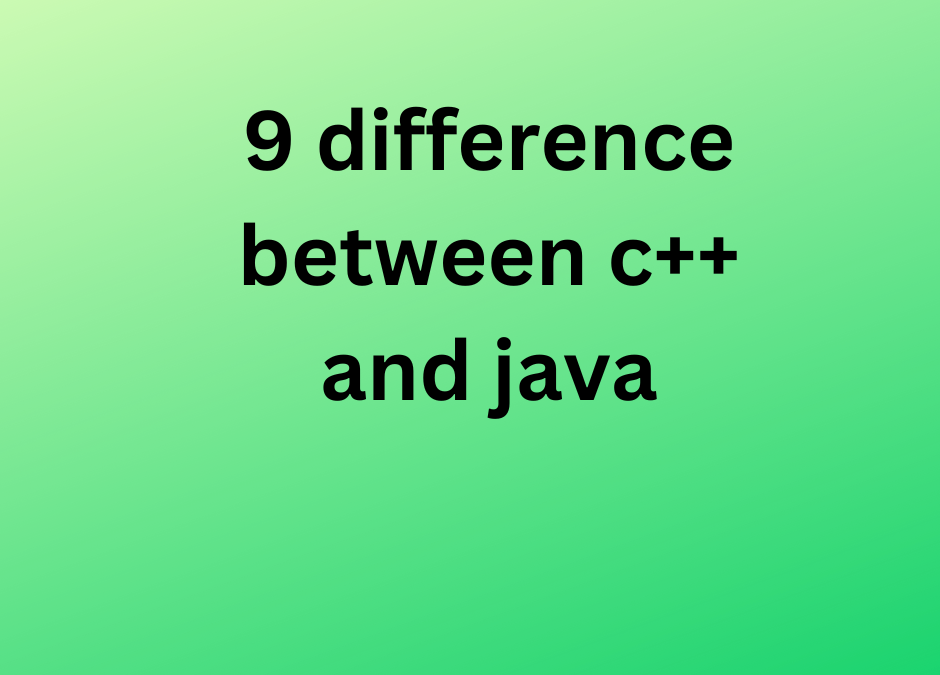- Syntax and Style:
- C++ uses a more complex syntax compared to Java, with pointers, memory management, and manual memory allocation.
- Java has a simpler and more consistent syntax, with automatic memory management through garbage collection.
- Memory Management:
- C++ allows direct memory manipulation using pointers, and developers must manually allocate and deallocate memory.
- Java uses automatic memory management, where the JVM (Java Virtual Machine) handles memory allocation and deallocation through garbage collection.
- Object-Oriented Programming (OOP):
- Both C++ and Java support OOP, but Java enforces it more strictly by making all code reside within classes and supporting single inheritance.
- C++ offers greater flexibility with multiple inheritance, allowing a class to inherit from multiple base classes.
- Platform Independence:
- Java was designed to be platform-independent. Java source code is compiled into bytecode, which can run on any platform with a Java Virtual Machine (JVM).
- C++ code is compiled into machine-specific code, making it platform-dependent. It requires recompilation for different platforms.
- Exception Handling:
- C++ uses exceptions for error handling, but their usage is not enforced, and exceptions can be left uncaught.
- Java enforces checked exceptions, requiring developers to handle or declare exceptions that can be thrown by a method.
- java training in coimbatore will help students to understand the object-oriented programming in a better way. They will get an understanding of how to write a program using Java. The course also includes a session on how to debug programs written in Java.
- Performance:
- C++ is typically considered faster than Java because it is compiled directly to machine code, allowing for more efficient execution.
- Java, being an interpreted language, generally has a slower execution speed. However, with just-in-time (JIT) compilation and other optimizations, the performance gap has narrowed.
- Libraries and APIs:
- C++ has a vast collection of libraries and APIs, including the Standard Template Library (STL), Boost, and many others.
- Java also has a rich set of libraries and APIs, such as the Java Standard Library (JSL), Java Development Kit (JDK), and various third-party libraries.
- Pointers and References:
- C++ supports both pointers and references, allowing direct memory access and manipulation.
- Java does not have pointers but supports references. However, these references are limited to objects and do not allow low-level memory manipulation.
- Multiple Compilation Units:
- C++ allows code to be split into multiple compilation units (source files), which can be compiled separately and linked together.
- In Java, each class is usually defined in its own file, and all files are compiled together as a single unit. Java source files are organized into packages.
India: +91-4446 311 234 US: +1-6502 652 492 Whatsapp: +91-7530 088 009
Upto 20% Scholarship On Live Online Classes

